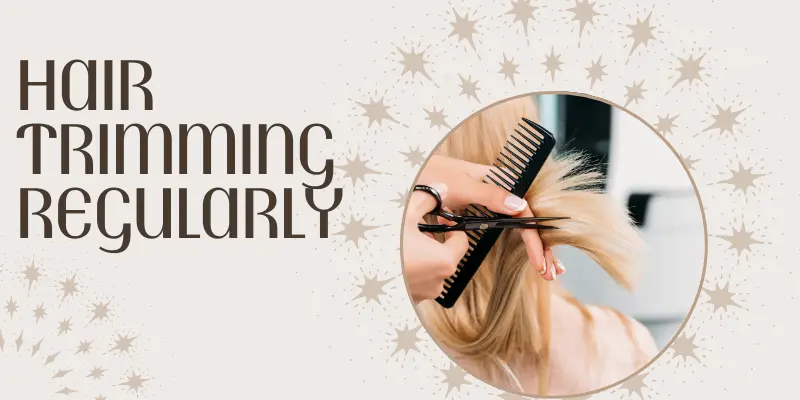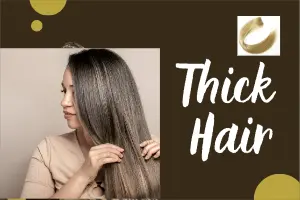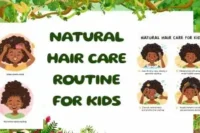Life-Changing Tips to Rescue Dry Hair and Restore Its Natural Beauty
Published: 19 Oct 2024
Dry hair is a common concern for many women. No one likes frizzy, dull hair with split ends. The good news? You can fix it. This guide shares 8 simple, science-backed tips to revive your hair’s natural beauty and moisture.
1. Drink Plenty of Water
Healthy hair starts from within. Drink enough water and eat foods rich in omega-3 fatty acids, like salmon and walnuts.

Hydration keeps your scalp and hair follicles nourished. When your body lacks water, your skin and hair show it first.
2. Use the Right Shampoo
Not all shampoos are created equal. Choose a sulfate-free shampoo made for dry hair. Sulfates strip away natural oils, worsening dryness. A study in the Journal of Dermatology shows that sulfate-free shampoos improve scalp comfort and moisture retention.
3. Deep Condition Weekly
Deep conditioners hydrate dry hair and restore softness. Use one weekly, especially those with shea butter, argan oil, or coconut oil. These ingredients lock in moisture and help strengthen strands. For best results, leave it in for at least 15-20 minutes.
4. Minimize Heat Styling
Heat tools like straighteners, curling wands, and blow dryers dry out your hair fast. Air-dry when possible. If you must use heat, always apply a heat-protectant spray to reduce damage and moisture loss.
5. Protect Hair from Harsh Weather
Sun, wind, and cold weather strip moisture from your hair. When going out, wear a hat or scarf. UV protection sprays also help shield hair from sun damage and prevent color fade or frizz.
6. Sleep on Silk or Satin Pillowcases
Cotton pillowcases absorb moisture and cause friction, leading to breakage. Silk or satin pillowcases reduce friction and help retain natural oils, leaving your hair smoother by morning. The benefits of silk pillowcases go beyond just hair—they also help your skin by minimizing creases and keeping hydration locked in overnight.
7. Hair Trimming Regularly
If left uncut, split ends migrate further up the hair shaft, causing more damage.

To keep the hair moisturized and healthy, they should have trims every 6 to 8 weeks to cut off the dead ends.
8. Apply Natural Oils
Your hair loves natural oils! Use coconut, olive, or jojoba as a pre-shampoo treatment or light leave-in. These oils deeply nourish your strands and scalp, helping to seal in moisture and reduce frizz. In fact, exploring jojoba hair oil uses can show you how versatile it is—from balancing scalp oil production to strengthening dry, brittle ends.
Bonus Tips:
Get 7-8 hours of sleep and manage stress- it affects your hair too!
Apply leave-in conditioners or serums to fight dryness.
Comb gently to prevent breakage.
Use a clarifying shampoo once a month to remove buildup.
Eat vitamin-rich foods like fruits and leafy greens.
Make DIY masks using avocado, yogurt, or honey for hydration.
Final Thoughts
Dry hair isn’t forever. With the right care, hydration, and routine, you can restore softness, shine, and strength. Stick to these tips, and give your hair what it craves-moisture, protection, and love.
FAQs:
If your hair is naturally dry, you should limit clarifying shampoo to just once a month. These shampoos are designed to deeply cleanse buildup, but frequent use can strip away essential natural oils your hair desperately needs. After clarifying, always follow up with a nourishing conditioner or hair mask to restore lost hydration. Focusing on moisture, a healthy diet, and avoiding too much heat will keep your strands in balance.
Dry hair can be caused by both genetics and lifestyle factors. For some, their hair type naturally produces less oil, making strands prone to dryness from birth. For others, things like overuse of heat styling, harsh chemical treatments, poor nutrition, or even exposure to cold, windy weather can strip moisture. Identifying your cause is key because it helps you adjust your care routine effectively.
Oils can be a blessing for dry hair, but only if used the right way. Natural oils like argan, coconut, and jojoba work well to seal in moisture and add shine. However, applying too much oil or using heavy oils on fine hair can make it greasy or weighed down. The trick is moderation—start small and see how your hair responds before making it a routine.
Dry hair is simply hair that lacks enough natural moisture and oils to stay soft and flexible. Without hydration, the strands become rough, brittle, and frizzy, which makes them more prone to breakage. It often feels hard to style and looks dull rather than shiny. Recognizing these signs helps you know when to focus more on hydration and protection.
Hydrating dry hair at home doesn’t have to be complicated. Use moisturizing shampoos and conditioners, drink plenty of water, and eat foods rich in omega-3s and vitamins. DIY masks with honey, banana, avocado, or aloe vera are great for adding an extra boost of moisture. Regularly applying lightweight oils also helps lock in hydration between washes.
The best shampoos for dry hair are sulfate-free formulas designed to cleanse gently without stripping oils. Look for ingredients like aloe vera, coconut oil, shea butter, or argan oil, which all help restore softness and shine. If your hair is curly or textured, you may benefit from creamier moisturizing shampoos. Matching your shampoo to your hair type makes all the difference.
Yes, home remedies can go a long way in improving dry hair when used consistently. Masks made with yogurt, avocado, honey, or aloe vera provide natural hydration and strengthen the strands. Reducing heat styling and eating a nutrient-rich diet also helps repair hair from the inside out. While they may not deliver overnight miracles, they are safe, affordable, and effective.
Daily care is essential to keep dry hair from getting worse. Avoid blow-dryers, straighteners, and curling irons as much as possible, since heat strips away hydration. Use wide-tooth combs or soft-bristle brushes to prevent breakage. Sleeping on a satin pillowcase reduces friction, and protective hairstyles like braids or buns keep your ends from drying out.
Well-hydrated hair feels soft, silky, and smooth when you touch it. It has a healthy shine that reflects light naturally, and it resists frizz even in humid weather. Curls and waves tend to stay defined and bouncy rather than limp or frizzy. If your hair holds styles well and doesn’t break easily, it’s a sign your hydration routine is working.
For dry hair, washing 2–3 times per week is usually ideal. Washing daily can strip away natural oils, leaving hair even more brittle and unmanageable. Choose a mild, sulfate-free shampoo that cleanses without drying, and always follow up with conditioner. If your scalp feels dry, you can also co-wash (conditioner-only washing) in between to refresh without stripping moisture.

- Be Respectful
- Stay Relevant
- Stay Positive
- True Feedback
- Encourage Discussion
- Avoid Spamming
- No Fake News
- Don't Copy-Paste
- No Personal Attacks

- Be Respectful
- Stay Relevant
- Stay Positive
- True Feedback
- Encourage Discussion
- Avoid Spamming
- No Fake News
- Don't Copy-Paste
- No Personal Attacks





